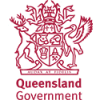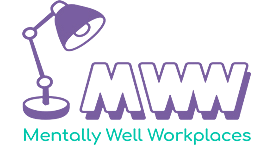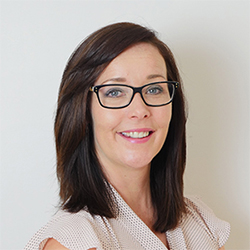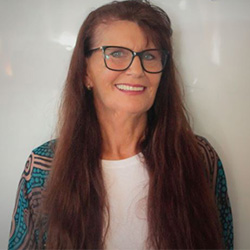"For many people, a sudden loss of employment or a reduction in hours, new limitations to social interaction and extreme lockdowns has led to a deterioration in mental health"
Working remotely and having limited face-to-face interaction with friends, family and colleagues is something most of us would not have experienced to the extent we have in the last two years.
Restrictions, social distancing, isolation and lockdowns have been in place since March 2020, with some of these measures only recently coming to an end in states and territories across Australia. For some of us, these changes and the effects of Covid-19 have introduced or amplified serious mental health problems.
The potential impact of Covid-19 on mental health and wellbeing was identified early on in the pandemic. Aside from the physical concerns associated with contracting Covid-19, there were significant concerns regarding the negative impact Covid-19 would have on mental health – regardless of whether a person contracted the virus or not.
What impact has Covid-19 had on mental health?
For many people, a sudden loss of employment or a reduction in hours, new limitations to social interaction and extreme lockdowns has led to a deterioration in mental health. Now, we know more about the immediate, short-term impacts the pandemic has had on mental health. The Australian Institute of Health and Welfare points to a rise in psychological distress and an increase in the use of mental health services since 2020. A significant number of Australians reported heightened stress, anxiety and loneliness. In states with more severe restrictions, almost one third of the state’s total population reported experiencing symptoms associated with depression and anxiety.
Throughout the Covid-19 pandemic, many pre-existing mental illnesses have been heightened and new concerns have emerged. These include, but are not limited to:
- Stress and fear associated with lockdowns and restrictions.
- Fear of contracting the virus and its long-term effects.
- Social isolation and loneliness.
- Job loss and financial instability.
- Trouble accessing usual support networks, for instance GPs or psychologists.
- Pandemic fatigue.
- Anxiety associated with mental health, for instance being concerned that you are seeing the onset of a mental illness.
What long-term problems could be linked to Covid-19?
What the longer-term mental health impacts will be is still unclear, though it seems likely that the pandemic will have an ongoing toll on mental health. The stress of living through a global pandemic and the associated impacts means many mental health professionals are concerned that mental health conditions could remain in the long term. Life will not return to normal, even as the pandemic becomes endemic.
Mental health professionals suggest that there are several mental health issues more likely to last in the long term:
- Obsessive-compulsive disorder (OCD). For many people, OCD was triggered or worsened as a result of the pandemic and the added stress of contracting Covid-19.
- Many people suffered from anxiety prior to the pandemic, but Covid-19 may have heightened feelings of anxiety. These feelings may continue and worsen, even as restrictions lift.
- Chronic loneliness. A lack of social interaction and social-distancing measures led to one in five Australians reporting feelings of loneliness in 2020. In 2022, people may find it increasingly challenging to rebuild these social relationships. When a person is detached from social life for a long period, they may also find themselves more resistant to re-introducing socialisation into their lives.
- For people who may have had painful and traumatic experiences in the past, fear and anxiety associated with Covid-19 can resurface these feelings. Trauma can become long-term, and people may find themselves more easily triggered even in a post-pandemic world.
What should I look out for?
You might notice that those around you are acting differently or displaying signs that something is wrong. You might also find your own behaviour is different to pre-pandemic.
Keep in mind that mental illnesses impact people differently, and just because a person is not displaying ‘common’ or ‘typical’ warning signs it doesn’t mean they don’t still need support. Different mental illnesses will also have their own signs and symptoms, but there are some things you can look out for:
- Mood changes or periods of intense highs and lows.
- Talking about self-harm or suicide.
- Talking negatively about life and the future.
- Changes in sleep cycles and eating habits.
- Increased substance use.
- Increased procrastination.
- Avoidance of social events.
- Loss of interest in hobbies and activities once found enjoyable.
- Feeling on ‘edge’ or unable to calm down and relax.
- Sense of hopelessness or worthlessness.
- Excessive fears, worries or anxieties.
- Increased inability to cope with daily life.
- Angry outbursts.
- Seeing or hearing things that aren’t there.
- Delusions and/or paranoia.
It’s also important to remember that, even as Australians come out of restrictions, many are still going through periods of quarantine. Many of the behaviours, thoughts and feelings associated with lockdown and quarantine are similar to, and can therefore amplify, symptoms of anxiety or depression. These include a lack of exercise, limited social interaction, a lack of purpose and staying in bed and not getting outside.
What comes next?
If you’ve noticed any concerning changes in the behaviour of a friend, family member or colleague, it’s worth reaching out. You can’t be sure who else around them is offering support, so don’t put it off or assume others are there to help. Even a quick check-in can make a difference.
Support comes in different forms, and might involve:
Emotional support
- Checking in with friends, family and co-workers regularly
- Having open discussions about mental health
- Listening to a person in a non-judgmental way
Practical support
- Offering to help make an appointment with a mental health professional
- Offering to assist with daily tasks
- Getting them out of the house
Connecting them with other supports
- Letting them know what options might be available
- Encouraging them to contact a GP, psychological, helpline, Employee Assistance Program or other professional support
- Connect them to a friend or loved one, or explore other resources and self-help programs
As indicated, Australians can anticipate ongoing mental health implications as a result of Covid-19. Partaking in Mental Health First Aid training or other mental health training can therefore be beneficial for those needing to support friends, family and colleagues—during and after the pandemic.
If you’re an employer, you may also consider training yourself and your staff in mental health. It’s often up to workplace leaders to be mental health advocates, and being proactive when it comes to mental health can help employees both in and out of the workplace.
